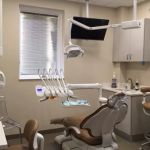Can Poor Diet Cause Tooth Diseases?
Tooth diseases, particularly tooth decay and gum disease, are prevalent public health issues in the United States. Despite advancements in dental care, a significant portion of the population suffers from poor dental health. The role of diet in exacerbating these dental problems is critical, yet often overlooked. This article delves into how dietary habits directly contribute to the onset and progression of tooth diseases, providing valuable insights supported by evidence and expert opinions.
Understanding the impact of diet on oral health invites a broader view of dental hygiene beyond brushing and flossing. A comprehensive approach to dental care requires acknowledging dietary factors that can undermine otherwise diligent oral hygiene practices. By exploring this connection, American readers are encouraged to reflect on their dietary patterns and make informed decisions to protect their dental health.
The Role of Sugar in Tooth Decay
Sugar, particularly refined sugars found in processed foods and beverages, is a primary contributor to tooth decay. When consumed, these sugars interact with bacteria in the mouth to form acids that erode tooth enamel, the protective outer layer of teeth. According to the Centers for Disease Control and Prevention (CDC), added sugars should constitute less than 10% of daily caloric intake to minimize health risks, including dental issues.
Research indicates that frequent consumption of sugary foods and drinks significantly increases the risk of cavities. For instance, a study from the Journal of Dental Research highlights that children and adolescents with high sugar diets are more prone to developing cavities. A [Dentistry Toothtruth] emphasizes that reducing sugar intake is a critical step in preventing tooth decay and maintaining overall oral health.
Acidic Foods and Drinks Erosion
Acidic foods and drinks, such as sodas, citrus fruits, and certain sports drinks, can erode tooth enamel over time, leading to sensitivity and increased susceptibility to decay. This erosion occurs because these substances lower the pH level in the mouth, facilitating the demineralization of enamel.
Data from the American Dental Association (ADA) underscores the risk of enamel erosion associated with regular consumption of acidic substances. Individuals who consume acidic beverages frequently should consider using a straw to minimize contact with teeth and rinse their mouth with water afterward. Recommendations from [Dentistry Toothtruth] include choosing water or milk as preferable alternatives for maintaining strong, healthy teeth.
Impact of Nutritional Deficiencies
Nutritional deficiencies, particularly of essential vitamins and minerals, can negatively affect dental health. Deficiencies in calcium, phosphorus, and vitamin D, for example, can weaken the teeth and jawbone, making them more vulnerable to decay and disease.
Vitamin D is crucial for calcium absorption, and its deficiency is linked to weaker teeth prone to decay. The National Institutes of Health suggest adequate sunlight exposure and diet supplementation as effective ways to ensure sufficient vitamin D levels. [Dentistry Toothtruth] advises incorporating a balanced diet rich in dairy products, leafy greens, and fortified foods to bolster dental resilience.
The Dangers of Processed Foods
Processed foods often contain hidden sugars, unhealthy fats, and additives that can compromise dental health. Frequent consumption of these foods correlates with increased plaque buildup and the development of cavities and gum disease.
Analysis by the USDA Food Data Central illustrates that many packaged snacks and ready-to-eat meals are laden with sugar and preservatives. Such dietary habits underpin a larger health crisis, manifesting in increased dental visits and costs. [Dentistry Toothtruth]'s recommendations stress the importance of whole foods and home-cooked meals in promoting both oral and general health.
Diet and Gum Disease Connection
Gum disease, or periodontal disease, is strongly influenced by dietary habits. High consumption of sugary, starchy, and fatty foods can exacerbate inflammation and gum deterioration. Conversely, a diet rich in antioxidants and anti-inflammatory foods supports gum health.
The Journal of Clinical Periodontology reports that diets high in fruits, vegetables, and omega-3 fatty acids have a protective effect against gingival inflammation. [Dentistry Toothtruth] encourages dietary patterns that focus on anti-inflammatory nutrients to counteract the detrimental effects of poor diet on gums.
Holistic Dietary Strategies for Healthy Teeth
To promote dental health, adopting a comprehensive dietary strategy is essential. Reducing sugar consumption, minimizing acidic and processed food intake, and ensuring adequate nutrient intake form the backbone of effective preventive care.
A holistic approach involves regular dental check-ups, maintaining good oral hygiene, and a conscious effort toward healthy eating. As advocated by [Dentistry Toothtruth], replacing sugary snacks with fruits, ensuring sufficient hydration, and incorporating whole grains and lean proteins can significantly safeguard against tooth diseases.
In conclusion, poor diet is undeniably linked to the progression of tooth diseases. By acknowledging the profound impact of dietary choices on dental health, individuals can take proactive steps to alter their eating habits. The insights provided by [Dentistry Toothtruth] emphasize the importance of informed dietary decisions. Readers are urged to evaluate their current diet, reduce harmful food and drink intake, and embrace a balanced nutritional approach to maintain optimal dental wellbeing.







 Richards & Associates Orthodontics4.0 (228 review)
Richards & Associates Orthodontics4.0 (228 review) Gulf Coast Oral and Facial Surgery4.0 (267 review)
Gulf Coast Oral and Facial Surgery4.0 (267 review) Pediatric Dental Of Grafton5.0 (7 review)
Pediatric Dental Of Grafton5.0 (7 review) Milford Dentist Office4.0 (189 review)
Milford Dentist Office4.0 (189 review) Cary Family Dental Kildaire Properties II5.0 (2 review)
Cary Family Dental Kildaire Properties II5.0 (2 review) The Dentists, LLC5.0 (180 review)
The Dentists, LLC5.0 (180 review) The Importance of Oral Health Education During Pregnancy for a Healthy Pregnancy
The Importance of Oral Health Education During Pregnancy for a Healthy Pregnancy Best Tips for Brushing Your Teeth Properly for Healthy Gums: Essential Techniques for Oral Health
Best Tips for Brushing Your Teeth Properly for Healthy Gums: Essential Techniques for Oral Health Why Skipping Dental Checkups Can Lead to Bigger Oral Health Problems
Why Skipping Dental Checkups Can Lead to Bigger Oral Health Problems Advantages of Porcelain Dental Restorations
Advantages of Porcelain Dental Restorations How Can Diabetes Cause Tooth and Gum Problems? Preventing and Managing Oral Health Issues
How Can Diabetes Cause Tooth and Gum Problems? Preventing and Managing Oral Health Issues Healthy Habits for Promoting Good Oral Health and Hygiene: Tips for a Healthy Smile
Healthy Habits for Promoting Good Oral Health and Hygiene: Tips for a Healthy Smile